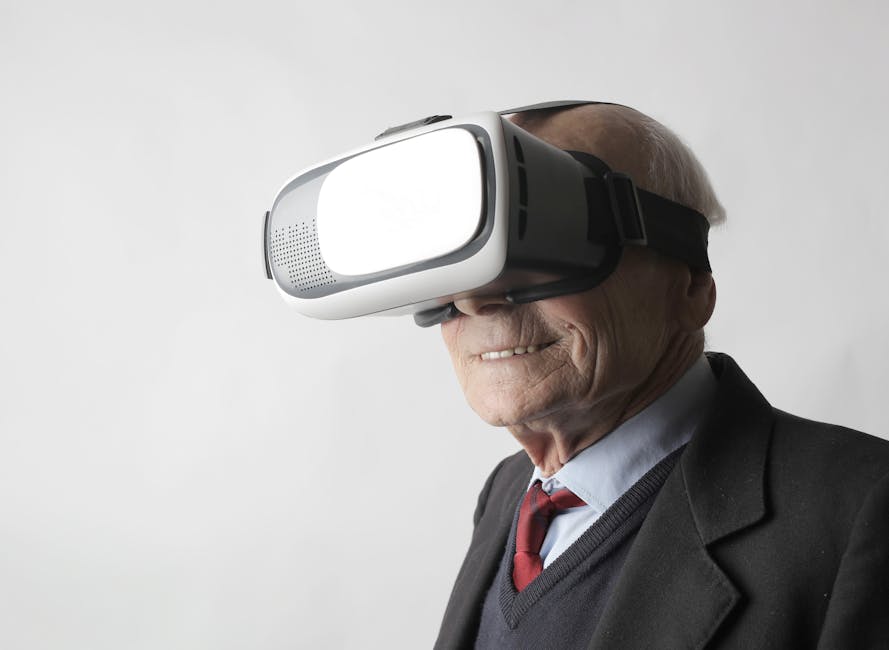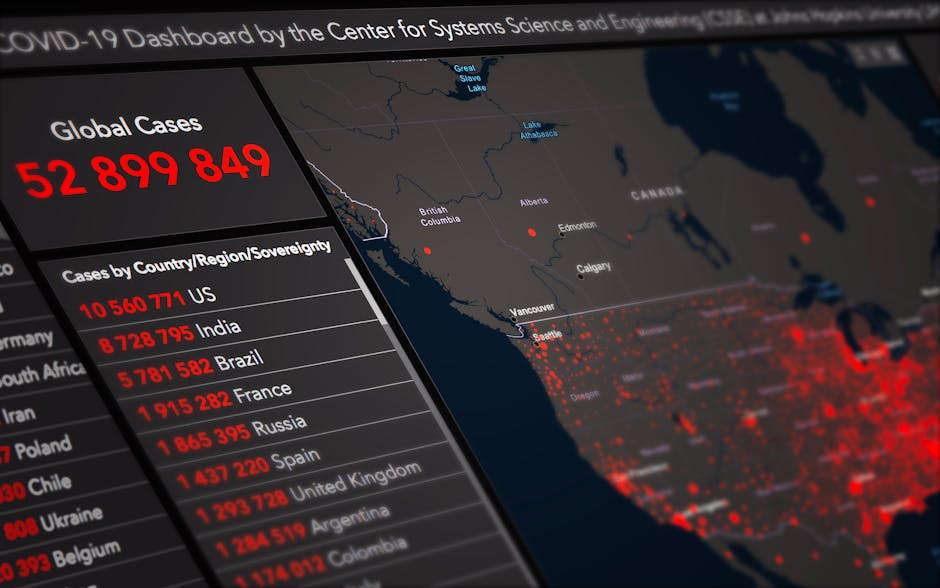York Is Zooming Into Web 4.0: Join The Revolution Now!
Are you ready for the revolution? In York, the future is now as we zoom into Web 4.0!
This groundbreaking technological advancement is set to transform the way we live, work, and play. Prepare yourself for a whole new world of possibilities that will redefine urban living.
Smart Cities are emerging, utilising cutting-edge technology to create sustainable and efficient environments for residents.
Get ready to step into a new dimension of entertainment with virtual reality experiences that will transport you to unimaginable realms.
The Internet of Things is here, connecting everything around us and revolutionising the way we interact with our surroundings.
And brace yourself for artificial intelligence, which is redefining human-computer interaction and challenging what we thought was possible.
Finally, say goodby to tedious online shopping experiences as e-commerce takes on a seamless approach.
Join us in this exciting journey as York embraces Web 4.0 – it’s time to join the revolution now!
Key Takeaways
- York is embracing Web 4.0 and revolutionising the way we live, work, and play.
- Smart cities prioritise sustainable infrastructure, energy-efficient buildings, and automated waste management.
- Integrated transportation systems and electric vehicles enhance urban mobility in smart cities.
- Artificial intelligence enables human-like robots and improves personalisation and productivity.
Smart Cities: Transforming Urban Living

Get ready to experience the future of urban living as smart cities take centre stage, revolutionising the way we navigate and interact with our increasingly interconnected environments. Smart cities are built on sustainable infrastructure and utilise advanced technology to enhance urban mobility, creating a more efficient and convenient lifestyle for residents.
In these futuristic cities, sustainable infrastructure is a top priority. Buildings are designed with energy-efficient systems, utilising renewable energy sources to minimise their carbon footprint. Smart grids seamlessly manage electricity distribution, optimising power usage and reducing waste. Waste management systems are automated, using sensors to efficiently collect and process garbage.
Urban mobility is also transformed in smart cities. Integrated transportation systems offer seamless connectivity between different modes of transport, making commuting easier than ever before. Electric vehicles become the norm as charging stations are readily available throughout the city. Advanced traffic management systems use real-time data to optimise traffic flow, reducing congestion and travel times.
As smart cities continue to evolve, they will not only improve sustainability and urban mobility but also enhance our overall quality of life. These technological advancements will create safer communities, increase access to essential services such as healthcare and education, and foster innovation by providing a platform for collaboration between individuals and businesses.
Transitioning into the subsequent section about virtual reality experiences: a new dimension of entertainment, get ready to immerse yourself in an entirely new world of interactive digital experiences that push the boundaries of entertainment even further.
Virtual Reality Experiences: A New Dimension of Entertainment

Immerse yourself in a whole new world with Virtual Reality Experiences, offering a mind-blowing dimension of entertainment that is captivating audiences worldwide. Did you know that over 171 million people are projected to be using virtual reality by 2022? Here’s why this technology is taking the world by storm:
-
Immersive Gaming: Virtual reality has revolutionised the gaming industry, allowing players to step into their favourite games like never before. With VR headsets and motion controllers, gamers can physically interact with virtual environments and experience a level of immersion previously unimaginable.
-
Virtual Tourism: Say goodby to traditional travel brochures! Virtual reality now allows us to explore destinations from the comfort of our homes. Visit famous landmarks, walk through ancient ruins, or even swim with dolphins—all without leaving your living room.
-
Enhanced Education: Imagine learning complex subjects through interactive simulations rather than textbooks alone. With virtual reality, students can dive deep into historical events or explore scientific concepts firsthand, making learning more engaging and memorable.
-
Therapeutic Applications: Beyond entertainment, virtual reality is being used in therapeutic settings as well. It’s shown promising results in treating phobias, post-traumatic stress disorder (PTSD), and anxiety disorders by exposing patients to controlled virtual scenarios.
By delving into these immersive experiences offered by virtual reality, we begin to understand how technology is transforming not only entertainment but also various aspects of our lives. Now let’s explore the next frontier of technological advancement—the Internet of Things—connecting the world around us seamlessly.
Internet of Things: Connecting the World Around Us

Discover how the Internet of Things seamlessly connects your world, allowing you to effortlessly control and monitor devices in your home, while also revolutionising industries such as healthcare, transportation, and agriculture. The Internet of Things (IoT) refers to the network of connected devices that exchange data and interact with each other without human intervention.
From smart thermostats that adjust the temperature based on your preferences to wearable fitness trackers that monitor your health, IoT technology is transforming our lives.
In a smart home, for example, IoT allows you to remotely control various appliances and systems using your smartphone or voice commands. You can turn on the lights before arriving home or adjust the thermostat while lying in bed. This level of convenience not only enhances our daily routines but also improves energy efficiency by optimising resource usage.
Beyond homes, IoT has vast implications across industries. In healthcare, connected medical devices enable remote patient monitoring and better management of chronic conditions. In transportation, IoT enables real-time tracking of vehicles for efficient logistics and improved safety measures. Even in agriculture, farmers can use sensors to monitor soil moisture levels and automate irrigation systems.
As we delve into the next section about artificial intelligence: redefining human-computer interaction, it’s important to recognise how IoT forms an essential foundation for this technological advancement.
Artificial Intelligence: Redefining Human-Computer Interaction

Experience a new level of interaction with computers as Artificial Intelligence revolutionises the way you communicate and engage with technology.
-
Human-like robots: Artificial Intelligence has advanced to the point where robots can now mimic human behaviour and interactions, blurring the line between humans and machines.
-
Machine learning applications: AI algorithms are being used in various applications, such as voice recognition, natural language processing, and image recognition, enabling computers to understand and respond to human input more accurately than ever before.
-
Improved personalisation: With AI, technology can adapt to your preferences and needs, providing personalised recommendations and experiences tailored specifically for you.
-
Enhanced productivity: AI-powered tools can automate repetitive tasks, freeing up your time for more important work or leisure activities.
-
Smarter decision-making: By analysing vast amounts of data quickly and accurately, AI systems can assist in making informed decisions based on patterns and trends that may not be immediately apparent to humans.
As we look towards the future of e-commerce – seamless online shopping experiences – Artificial Intelligence will play a crucial role in transforming how we shop online.
The Future of E-commerce: Seamless Online Shopping Experiences

The future of e-commerce will be like a well-oiled machine, with seamless online shopping experiences that cater to each individual’s needs and preferences.
Personalised recommendations will play a crucial role in this revolution, ensuring that customers are presented with products and services that aline with their interests and past buying behaviour. By leveraging artificial intelligence and machine learning algorithms, e-commerce platforms will be able to analyse vast amounts of data to understand customer preferences and make tailored recommendations.
Additionally, the checkout process will become frictionless, eliminating any barriers or frustrations that may hinder the completion of a purchase. With advancements in technology such as one-click checkout options and mobile payment solutions, customers will be able to make purchases quickly and effortlessly. This streamlined process will not only enhance the overall user experience but also increase conversion rates for businesses.
Furthermore, emerging technologies like virtual reality (VR) and augmented reality (AR) have the potential to revolutionise the way people shop online. Customers will be able to virtually try on clothes or visualise how furniture would look in their homes before making a purchase decision. These immersive experiences bring an added layer of convenience and confidence to online shopping.
The future of e-commerce promises personalised recommendations and frictionless checkout processes. As technology continues to advance, online shopping experiences will become increasingly tailored to meet individual needs while providing convenience and efficiency for customers worldwide.
Frequently Asked Questions
How can smart cities improve the quality of life for residents?
Smart city innovations, such as sustainable urban development, can greatly enhance the quality of life for residents. These advancements improve transportation systems, promote energy efficiency, provide better healthcare and education services, and enhance overall safety and security.
What are some examples of virtual reality experiences beyond entertainment?
Virtual reality experiences go beyond entertainment. They offer healthcare applications like surgical training and therapy, as well as educational simulations for training professionals in various fields.
How does the Internet of Things impact everyday life?
The internet of things impacts everyday life by connecting devices and creating smart homes. Connected devices can automate tasks, monitor energy usage, and provide convenience, making our lives more efficient and comfortable.
What are the ethical concerns surrounding the use of artificial intelligence?
Data privacy and job displacement are two major ethical concerns surrounding the use of artificial intelligence. According to a recent study, 78% of people worry about their personal data being misused by AI systems.
How can e-commerce platforms ensure secure and reliable online transactions?
To ensure secure online transactions, e-commerce platforms must implement robust encryption protocols, multi-factor authentication, and regular security audits. They should also partner with trusted payment gateways and provide customer support for any transaction-related concerns to build reliable platforms.
Conclusion
Now is the time to jump on board the revolution. Don’t miss your chance to be a part of the rapidly evolving web 4.0 in York.
With smart cities transforming urban living, virtual reality providing new dimensions of entertainment, and the internet of things connecting our world like never before, this is a wave you don’t want to let pass you by.
Embrace the future where artificial intelligence redefines human-computer interaction and seamless online shopping experiences become the norm.
Get ready to surf into a world that will leave you breathless with its possibilities.
Contact us to discuss our services now!
